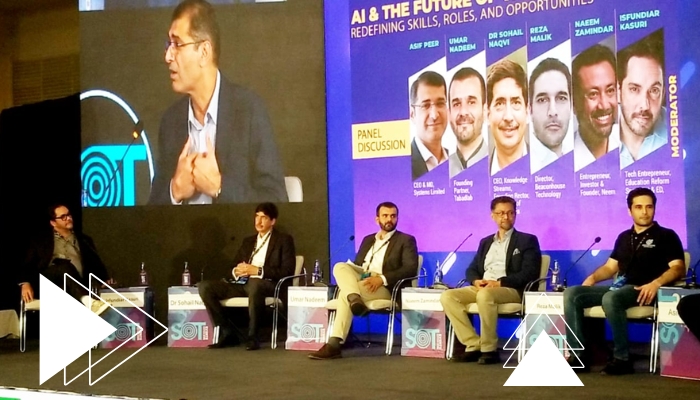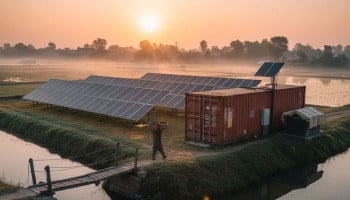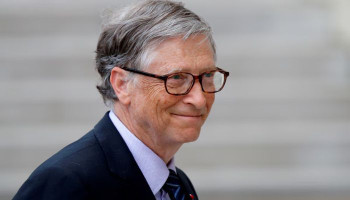
In a rapidly evolving world where artificial intelligence (AI) is transforming industries and reshaping job roles, Pakistan stands at a pivotal moment. As the nation moves towards a technological revolution, AI presents remarkable opportunities to enhance productivity, bridge educational gaps, and empower society at large.
With the global workforce facing profound changes, experts are now exploring ways to equip society for success in an AI-driven economy while addressing the complexities and ethical concerns that accompany this emerging field.
A panel discussion titled ‘AI and The Future of Work’ was organised by the School of Tomorrow (SOT) 2024 at the Beach Luxury Hotel in Karachi, aiming to explore the profound, yet unmeasured, impact of AI on workforce dynamics.
The panel included System Limited CEO Asif Peer, Founding Partner TabadLab Umar Nadeem, Knowledge Streams CEO Dr Sohail Naqvi, Director Beacon House Technology Reza Malik, Entrepreneur and Investor Naeem Zamindar focused on the significance of navigating these modifications, ensuring that it serves as a tool instead of displacement, as the growth of AI has raised several concerns about it.
Umar highlighted AI’s transformative potential but cautioned about the technology’s rapid development, which some view as a form of digital colonisation. He underscored the need to harness AI's potential to build a positive future for Pakistan and globally.
How far is Pakistan in adopting AI?
Umar pointed out disparities in AI development between Pakistan and other countries, describing AI as “an opportunity that can fill a lot of basic gaps on the fundamental level in the system of Pakistan,” which he believes is currently flawed. He advocated for AI to support decision-making rather than replace human decision-makers, emphasising the risks linked to unchecked technological advancements.
AI — a transformative force
Naeem remarked, “AI is transforming the world,” predicting that within the next 5-10 years, human intellect and physical capacity might become less essential. He shared that the Board of Khan Academy Pakistan is preparing to launch AI initiatives aimed at advancing education, creating exceptional opportunities for students and teachers in a rapidly evolving landscape.
The discussion also addressed AI’s potential as a societal equaliser, especially in Pakistan, where legacy systems are less entrenched. As AI diversifies across various sectors like healthcare and education, significant opportunities are emerging that could redefine societal operations and growth.
Reza highlighted AI’s role in revolutionising education, assisting teachers, and enhancing grading systems, ultimately leading to substantial societal benefits. However, he stressed the need for guidelines that adhere to international standards to ensure the ethical deployment of technology as it continues to advance.
Umar outlined three key areas for Pakistan to leverage AI: Automation, Augmentation, and Displacement. With Pakistan’s literacy rate stagnant at around 60%, he argued that upskilling individuals is essential for embracing AI and progressing toward a more technologically advanced society. By focusing on currently underdeveloped areas, Pakistan can better position itself to benefit from AI’s vast potential.
In conclusion, Naeem envisioned the transformative breakthroughs AI could bring, describing this shift as “an age of human flowering,” where 90-95% of focus will turn towards intellect, unlocking countless new possibilities for future generations.
If Pakistan continues its progressive approach to AI, the nation could unlock phenomenal opportunities, ensuring that AI is harnessed in a way that benefits society as a whole.
















